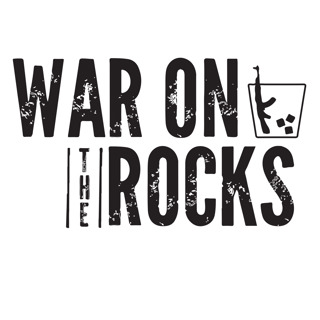
The Unmasking of Ned Stark and the Future of Air Force Leadership
Almost exactly one year ago, an Air Force colonel using a pseudonym -- 'Ned Stark' -- penned an article for War on the Rocks . This cri de coeur -- a call for major reforms to how the Air Force selects and promotes leaders -- quickly burned across the author's service. It fueled an important debate and even elicited a supportive response and job offer from none other than Gen. David L. Goldfein, the chief of staff of the Air Force. 'Stark' penned more articles for War on the Rocks and the Air Force Times in the year that followed. And now he is choosing to come out into the open and reveal his identity. Listen to his conversation with Ryan Evans on why he chose to join the public debate, the benefits and costs to using a pseudonym, the difficulties of hiding his identity, and the fundamentally important personnel and leadership issues at stake in the U.S. Air Force. Ned also talks about his future, the role of faith in his professional ethics, and what books have most influenced him.
13 Touko 201949min

Fresh Voices on Grand Strategy
It's time to rejuvenate America's national debate on grand strategy. And that's just what we try to do in this latest episode, which was recorded at the Michael J. Zak lecture series hosted by the Center for a New American Security. The debate got spirited! So who are these fresh voices? If you're an avid War on the Rocks listener and reader, you might already know some of them (because we are the freshest national security publication out there, amirite?): Rebecca Lissner (U.S. Naval War College, yes her opinions are hers and hers alone), Josh Shifrinson (Boston University), Kate Kizer (Win Without War), and Emma Ashford (Cato Institute).
17 Huhti 201939min

Civil-Military Relations Gone Wild?
Debates over civil-military relations have reached a fever pitch since the 2016 presidential campaign and the beginning of the Trump administration. Many have focused on the top-down questions: What role should retired generals play in our political system? What are the consequences of having so many former military leaders at the upper-most ranks of a presidential administration? Should we be worried about the state of civilian leadership in the Pentagon? But to put those in their right context, it is important to look at civil-military relations from the bottom-up. How are ethics taught to our soldiers, sailors, airmen, and marines? What is the state of the profession of arms? What does it really mean for the American people to honor their troops? In this episode, we tackle many of these questions from the top-down and the bottom-up with a terrific panel of experts: Loren DeJonge Schulman of the Center for a New American Security, Alice Hunt Friend of the Center for Strategic and International Studies, and Steven Foster of the U.S. Army and one of the contributors to Redefining the Modern Military: The Intersection of Profession and Ethics.
18 Maalis 201949min

With the Caliphate Crushed, What's Next?
With the last slivers of Syrian territory being wrested from the grasp of the Islamic State, where does the war against this tenacious terrorist organization go next? To understand where we came and where we are heading, we assembled a fantastic cast of experts that co-hosts Usha Sahay and Ryan Evans did their best to wrangle: Rasha al-Aqeedi of FRPI, Ryan Fishel of the U.S. Air Force, Hassan Hassan of the Tahrir Institute, Haroro Ingram of Program on Extremism at GWU, Brett Reichert of the U.S. Army, and Aaron Stein of FPRI. Our guests in this episode range from people who fought the self-proclaimed Caliphate on the ground and in the air to scholars, think tankers, and analysts.
25 Helmi 201959min

Mayhem and Misadventures in the Middle East
The Middle East is the region that keeps on giving, and taking away. How has the American approach to the use of force evolved in Syria and Iraq? And what is the relationship between U.S. politics and these policies? How is Turkey preparing for the possible withdrawal of U.S. forces from Syria? What is Iraq's view of the region's conflicts? Is the Trump administration really taking the fight to Iran somehow? What of other great powers interests? Our guests tackle these questions and many more. We were joined -- over drinks of course -- by Doug Ollivant of New America and Mantid International,* Elizabeth Saunders of Georgetown University, and Nicholas Danforth of the Bipartisan Policy Center. Don't forget to check out the War on the Rocks membership program: https://warontherocks.com/membership *Mantid does business in Iraq
11 Helmi 201955min

Ready to Compete? America's Military and Technological Edge
About a year after the National Defense Strategy was launched, what progress has been made when it comes to America's edge against its great power rivals? And what role do great power partners, like India, have to play? Over drinks at the Jefferson Hotel's Quill Bar (our old school recording location, as longtime listeners of the show will remember) Elbridge Colby, Tanvi Madan, Roger Zakheim, and Nina Kollars debate these questions and more.
4 Helmi 201950min

No Good, Very Bad Ideas in National Security
Bad ideas. How much trouble do they cause in national security? How do they disrupt or hinder the protection and advancement of American interests? Where do they come from? How do they gain traction? Our friends at the Center for Strategic and International Studies decided to delve more deeply into these questions and more with their project, "Bad Ideas in National Security." It features short articles from various thinkers on recently considered and not too obvious bad ideas in the defense and foreign policy space. In this episode of the War on the Rocks podcast, we dig into a selection of them with a stellar panel of experts. Also, Zack Cooper and I continue our self-indulgent feud on the great wargame controversy of 2016, and if you don't know what I'm talking about, listen to our last episode. You can read all the articles in the "Bad Ideas" series at the CSIS website.
17 Tammi 201952min

Full Steam Ahead: Naval Competition with China
With a new era of great power competition upon us, the U.S. Navy is in the midst of developing its future fleet. The good people up at the U.S. Naval War College are chipping in to help their service figure out the answers to big strategic and operational questions. This episode was recorded on the sidelines of the college's "Bridging the Straits" conference and focuses on the dynamics of maritime competition with the People's Republic of China. We have a very special guest host for this episode: Zack Cooper of AEI and a contributing editor at War on the Rocks. Zack was joined by Ketian Zhang, Jonathan Caverely, Michael O'Hara, and Fiona Cunningham. You don't want to miss this!
20 Joulu 201849min






















